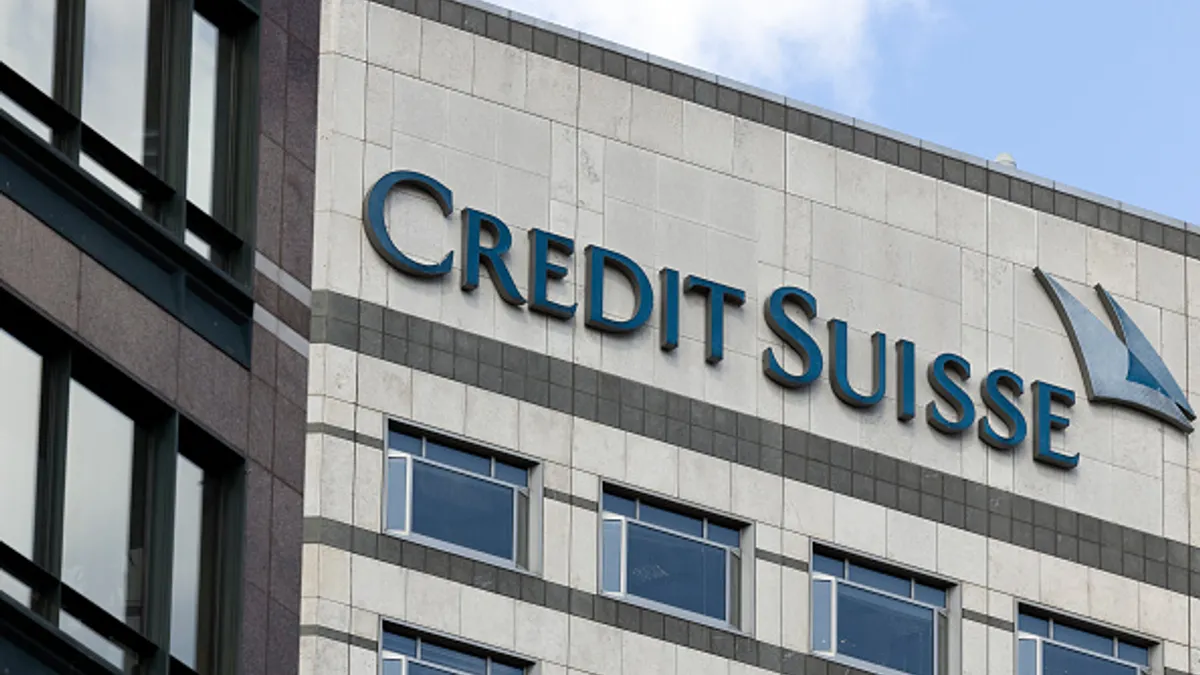Credit Suisse plans to cut 9,000 jobs over the next three years as part of a wide-ranging revamp it announced Thursday.
About 2,700 of those cuts will come in the fourth quarter, the bank said.
Credit Suisse also outlined its plan to break up its investment bank with the aim of reducing risk-weighted assets by 40% over the next three years and focusing on serving institutional and wealth management clients.
As part of the plan, it’s spinning off its capital markets and advisory units under a revived CS First Boston banner. That business will be led by Michael Klein, a Credit Suisse board member who is stepping down from that role to take the helm.
The bank also reached a deal to sell the majority of its securitized products group’s assets to a consortium consisting of Apollo Global Management and Pacific Investment Management Co.
Credit Suisse is also setting up a capital release products unit — a “bad bank” of sorts meant to hold high-risk assets it aims to wind down.
The bank confirmed Christian Meissner, its investment-banking chief, would step down — a move rumored in recent weeks. David Miller and Michael Ebert have been running the division’s day-to-day operations since July. Thursday’s announcement cements Miller’s place as global head of investment banking. Ebert, meanwhile, will co-lead the bank’s markets business with Ken Pang. Louise Kitchen will run the capital release products unit, the bank said.
Amid the host of changes, Credit Suisse said it plans to raise $4 billion through a rights issue and the selling of shares to investors including the Saudi National Bank, which will pay $1.5 billion to take a 9.9% stake in the bank — making it Credit Suisse’ second-largest investor.
The $4 billion capital raise mirrors the amount the bank posted in a quarterly loss Thursday. Credit Suisse estimated the cost of its restructuring at around $2.9 billion over the next two years.
Credit Suisse characterized Thursday’s moves as a plan to make the bank “simpler, more stable and with a more focused business model built around client needs.”
“The new Credit Suisse will definitely be profitable from 2024 onward,” CEO Ulrich Körner told Bloomberg. “We do not want to overpromise and underdeliver, we want to do it the other way around.”
Körner said the bank has already lined up an outside investor — but didn’t identify it — willing to make a $500 million commitment to the First Boston business.
Credit Suisse on Thursday reported nearly $13 billion in outflows during the first three quarters of 2022 as wealth-management and Swiss domestic clients pulled money from their accounts and switched to rivals. That compares with net inflows of about $30 billion during the same period a year earlier.
The withdrawals have continued throughout the first two weeks of October amid negative press and social media coverage, CFO Dixit Joshi said.
“While these outflows have stabilized since this period, they have not yet reversed,” the bank said in its statement.
Credit Suisse will pay a “nominal” dividend over the next couple of years, before reverting to “meaningful” payments from 2025 onward, executives said.
The bank is aiming for a 6% return on tangible equity in 2025.














